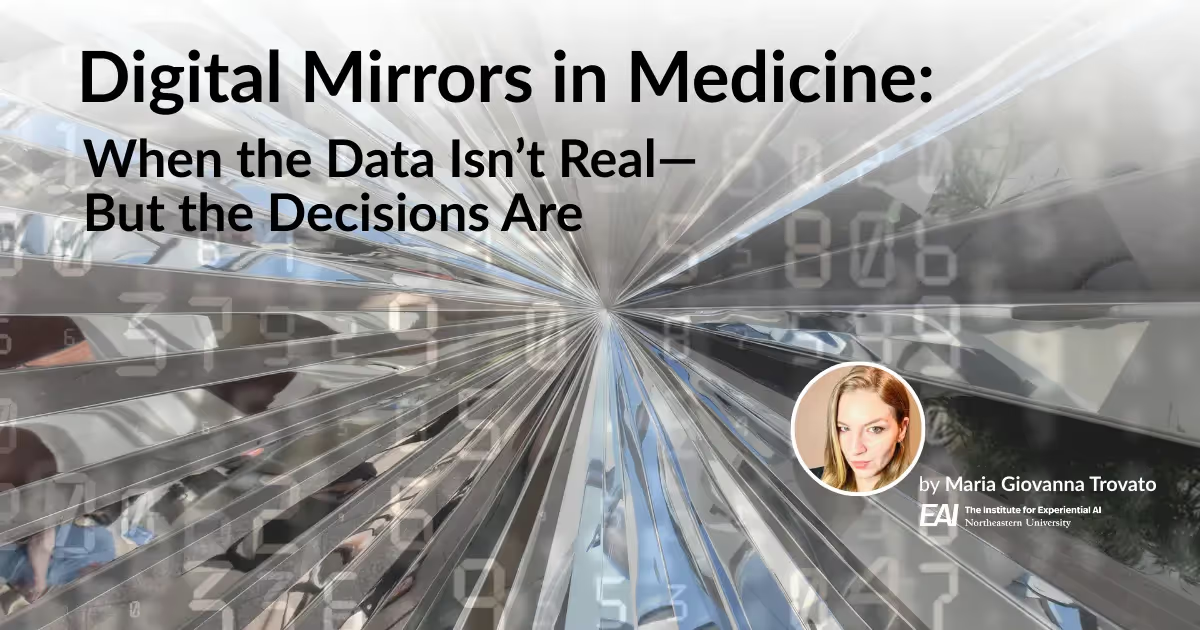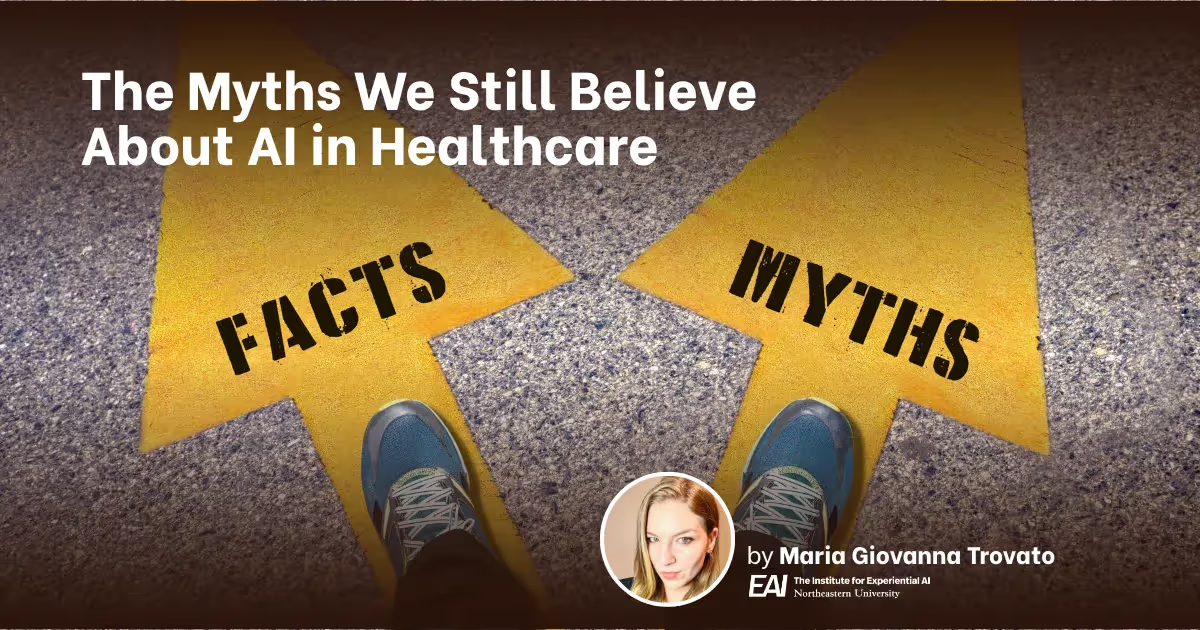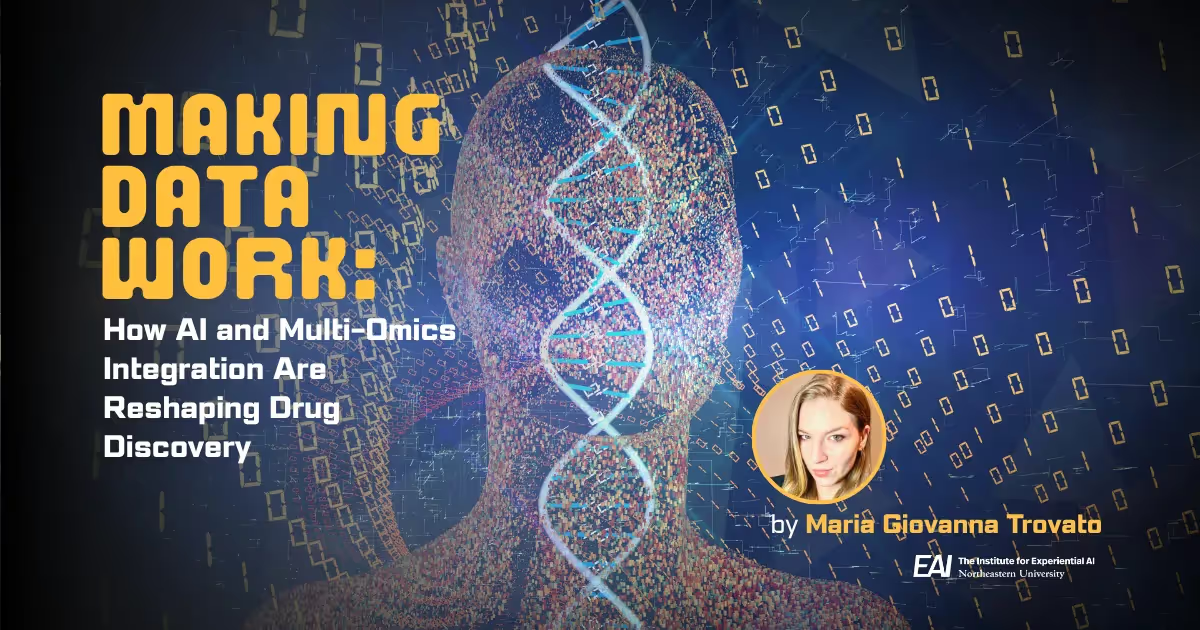Shaping the Future of Health with AI: Breakthrough Insights from The State of AI in Precision Health
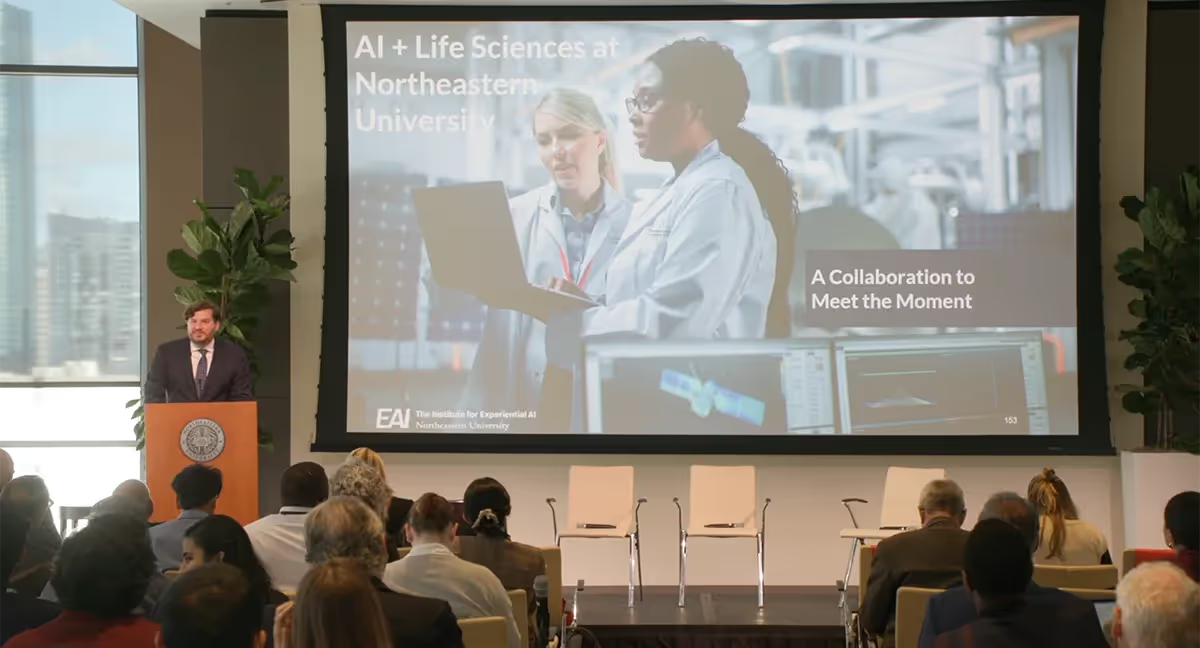
AI is already accelerating drug discovery, accurately diagnosing diseases, and freeing up clinicians to spend more time with patients, but key challenges remain in accelerating AI’s transformation of the health and life science industries.
Experts leading that transformation packed into the 17th floor of Northeastern University’s East Village — with hundreds more joining online — to discuss hurdles and share early successes at The State of AI in Precision Health conference hosted by the Institute for Experiential AI Oct. 10.
The event brought together executives from world-class organizations like Boston Children's Hospital, Mayo Clinic, Harvard Medical School, Mass General Brigham, and Advocate Health as well as academic leaders, researchers, investors, and entrepreneurs commercializing AI-powered innovations.
The gathering offered an inside look at the many ways that AI is already improving aspects of healthcare. Experts also pointed to several areas where AI isn’t yet living up to the hype. Overall, the event made clear that if AI’s strengths can be harnessed in a way that accounts for its limitations, the technology could power the largest improvements in public health of our lifetime.
"What do we need to enable the success of these models?" asked Institute Director of AI + Health Gene Tunik in opening remarks. "We need to figure out the boring stuff: Scheduling, documentation, billing. We need to have real-time curation of data with predictive models running in the background to help inform clinical decisions. We need to have a means by which to characterize disease and guide interventions. And we need to have smart, assistive technologies that can be deployed that can interact with people."
AI Goes From Bench to Bedside
The event began with a keynote discussion between Institute for Experiential AI Executive Director Usama Fayyad and Larry Brilliant, who worked with the World Health Organization to successfully eradicate smallpox and is currently the CEO of Evity.ai.
The AI pioneers discussed the future of AI-enabled medicine and noted the importance of keeping a human in the loop of AI systems — what the institute refers to as “experiential AI.”
In other talks throughout the day, presenters shared ways they’re using AI to achieve things that were previously impossible. Several examples came in the field of drug development.
"AI is not just a buzzword," Crystal Brown, CEO of AI-based drug discovery company CircNova, told the audience. "At CircNova, we're able to boost cycle times, cut cost curves, and gain new biological insights that allow us to not only design novel, non-coding and circular genes, but also predict what those structures should be.”
Marinka Zitnik, an assistant professor of biomedical informatics at Harvard Medical School, focuses her research group on developing AI models that can improve scientific understanding of medicines and optimize drug designs, with the eventual goal of developing AI that can learn and innovate on its own.
"We've been able to effectively predict molecular structures for not only proteins, but also protein complexes and other types of molecules, at close to atom-level precision," Zitnik says. "From an algorithmic standpoint, that's incredibly exciting because it means that there are some models that are currently capable of being used to replace experimental work."
Zitnik says AI is making her research more efficient by accelerating her team’s ability to write code, brainstorm new research ideas, conduct literature reviews, and curate and process datasets.
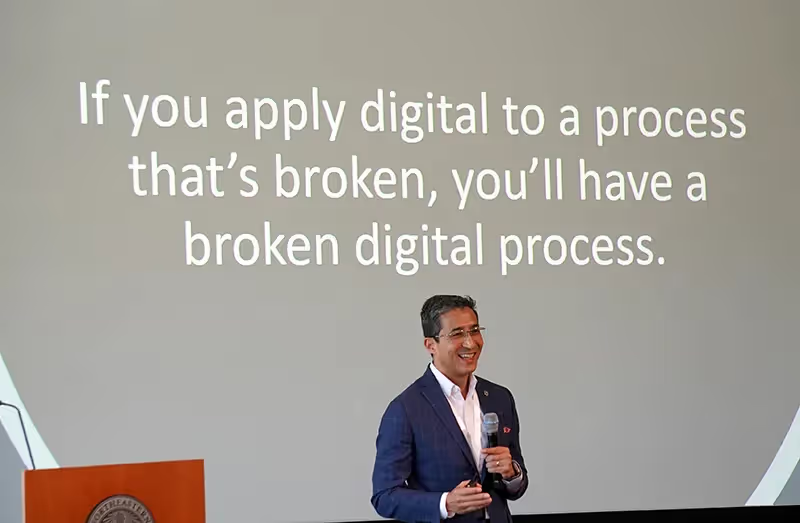
Taking Healthcare Out Of Hospitals
Another area where AI holds promise is remote health monitoring. David Levine, the medical director of strategy and innovation at Mass General Brigham, said his organization is using AI to identify patients that could be cared for at home instead of inside the hospital. Other presenters talked about how AI can improve home-based health monitoring.
"AI can make sense of the vast volume of data that wearables collect — this is possible right now," said Hoda Sayed-Friel, the former executive VP of Meditech. "The number one reason that physicians are not using these continuous monitors is they don't want to see how many steps you took every single day for the last month, but they do want to see that you exercise at a certain level, and that your vitals are normal. You can put that information into patients' electronic health record for doctors and nurses, and it can be used to predict when patients are at risk of adverse events."
Of course, physicians aren’t the only ones that need to embrace these home-based tools. Patients also need to use them. Gene Tunik, our institute’s director of AI + Health, discussed the importance of improving patient communication.
"The key point will be whether these technologies can interface with humans the way another human would," Tunik said. "What is the emotional IQ of these technologies? That will dictate the uptake of this."
Key Challenges Remain
Experts noted that humans are essential when deploying AI systems because current models have no commonsense reasoning ability, and they can’t adapt to changing conditions they weren’t trained on.
“With generative AI, even with curated data, it’s hard to know if a given answer to a prompt is credible," Mayo Clinic Platform President John Halamka said. "We’re using humans in the loop, but there are going to be other techniques [for ensuring equity] developed.”
Other restraints to AI’s progress include a lack of high-quality datasets, the persistence of legacy systems and workflows, barriers to collaboration, and integrating disparate sources of data.
“On multi-modal data, genomics, metabolomics — all the omics — I haven’t seen a company bringing a drug into the clinic utilizing multimodal data. That’s one the biggest things that excites me," Springs said. "Multi-modal is going to be the way to go, it’s just expensive."
The Future of AI-Enabled Health
The event was one of several hosted by the Institute for Experiential AI that convened a multidisciplinary group of leaders to share perspectives on the rapidly-evolving landscape of AI. But even as presenters discussed their past experience with AI, much of the conversation had to do with the future.
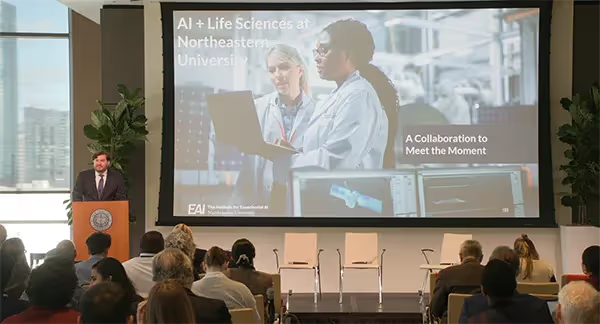
"Why do I think the opportunity of applying AI is so large?" asked institute Director of AI + Life Sciences Sam Scarpino. “Neural nets can help us uncover a lot of what's going on in health and disease by modeling extraordinarily complex processes. Most of our existing bioinformatics tools don't scale to modern big data sets in biology, but neural networks do. We need to Identify the bottlenecks in AI and the life sciences and solve them so we can scale to meet the biggest opportunities."
Levine at Brigham and Women’s Hospital recently found that keeping patients in their home decreased readmission rates, increased patient satisfaction, and lowered overall costs to the hospital. Now Levine is excited to incorporate the latest AI technologies in home care.
"Most home hospital programs today unfortunately are not using a lot of technology," Levine said. "I think it's an amazing opportunity for people in this room who want to design and develop for that setting, because current approaches are often super old fashioned."
The convergence of such a multidisciplinary group of experts offered fresh perspectives to learn from. Northeastern’s Bouvé College of Health Sciences Dean Carmen Sceppa noted that the conference exemplified the strength and mission of Northeastern University more broadly.
"Northeastern’s strategic vision is to erase traditional boundaries and to empower students, faculty, alumni partners, and innovators to solve challenging problems in the world in pursuit of impact," Dean Sceppa said. "This conference today aligns with such goals. We hope you will be inspired and challenged by today’s presentations and discussions as we collectively, across disciplines and fields, seek to advance the field of AI-enabled health."
Learn more about the Institute for Experiential AI’s work using cutting edge AI to solve real-world problems in health and the life sciences, and stay tuned for more coverage from The State of AI in Precision Health!

